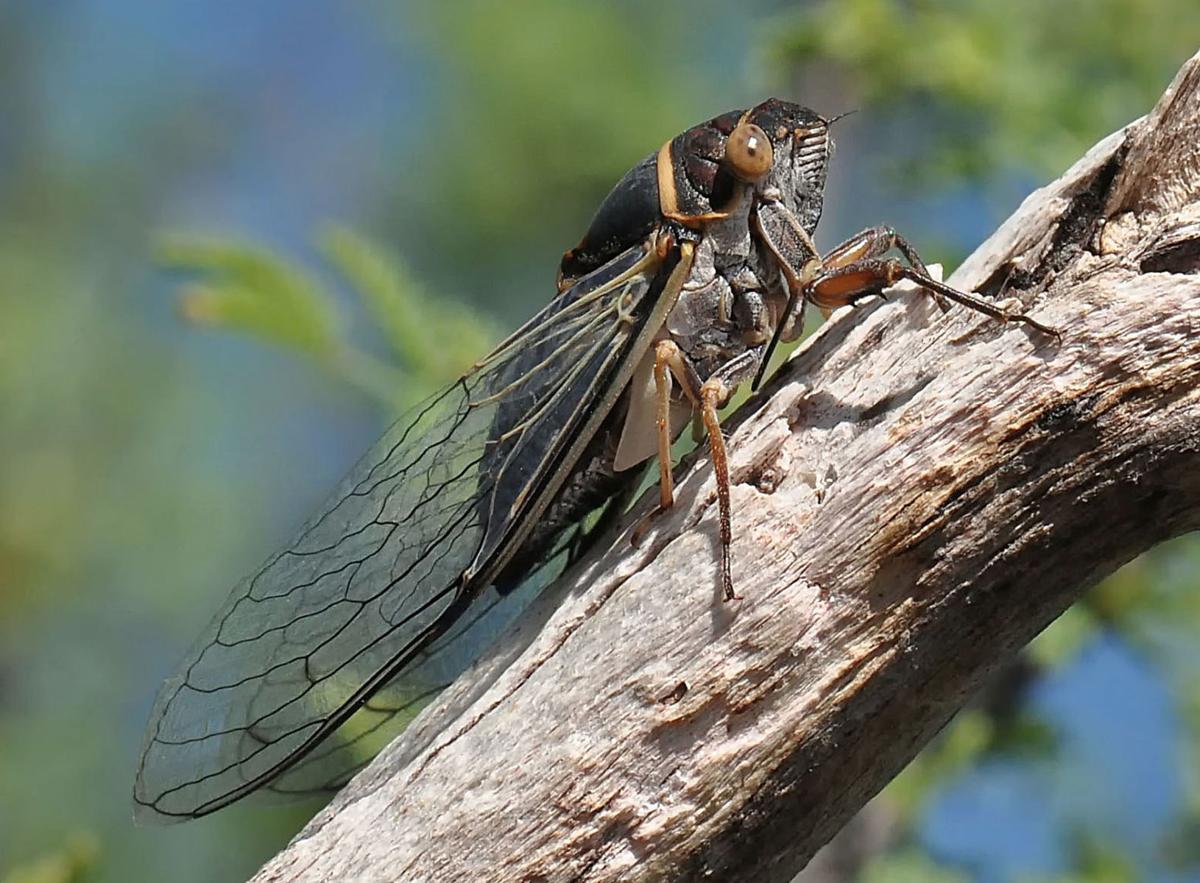In the summer, insects are everywhere. In Arizona, we often hear the buzzing of cicadas or catch glimpses of giant mesquite bugs on the trees in our backyards.
But when temperatures drop, even insects have to find ways to stay warm. While humans have warm coats, space heaters and hot drinks to keep us cozy through the winter, insects have to get a little more creative.
Gene Hall, University of Arizona entomologist, said insects don’t function well when the weather is cold and typically stay inactive through the winter months.
“There’s fewer resources available for them to feed on, like if they’re attracted to certain plants or flowers, a lot of those aren’t out during the wintertime,” he said. “So, definitely, the least amount of insect activity during the course of the year is in the winter.”
To wait out the cold, many insects will overwinter, or remain in a hibernation-like state. They’ll seek shelter inside buildings, under tree bark or dead cactus, beneath fallen leaves or underground.
According to Hall, some developing insects, such as beetles and moths, will pupate over winter months. During the pupa stage, insects are immobile and are preparing to enter the final stage of their development as an adult.
As they seek shelter from the cold, people may see an increase in the number of insects in their home, including spiders, scorpions and beetles.
“Make sure your home is sealed up as tightly as possible with gaps around doors and windows. Make sure there’s no holes in screens and that the bottoms of doors have that kind of flashing or trim on it,” Hall said.
Even with low insect activity, winter is actually a very important time for insects because the weather will determine their fate for the rest of the year.
“We’re very dependent on winter rains to impact the spring activity for the insects that emerge and plants that they feed on,” Hall said.
Not enough rain through the winter means that insects will struggle to get the nutrition they need from plants in the spring. But too much rain could also be detrimental.
“If we get overly wet winters, heavy rainfall and the temperature stays cold for longer than usual, that can impact insects, too, because it could lead to a lot of insects that are overwintering being drowned or killed off by mold,” Hall said.
That is exactly what happened last winter, according to Hall. For example, cicadas, which usually signal the arrival of the summer monsoon, didn’t show up until much later in the season and in lower numbers.
“I have a feeling that a lot of the amateur stages of cicadas probably drowned or were killed off by mold because of the excessive rains that we had last winter,” Hall said.
Other insects negatively impacted by last year’s wet winter were the Palo Verde root borer beetle and the green fig beetle.
“All of these things can be potentially impacted by excessively wet winters or even an excessively dry winter,” Hall said. “It’ll be interesting to see what kind of winter we have and how all of that will impact what happens in the spring.”





